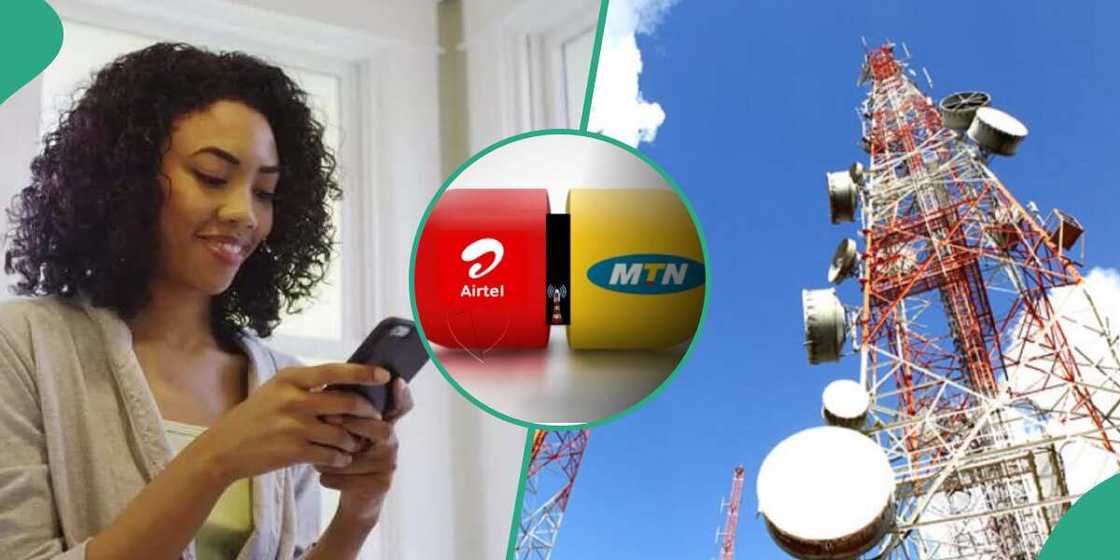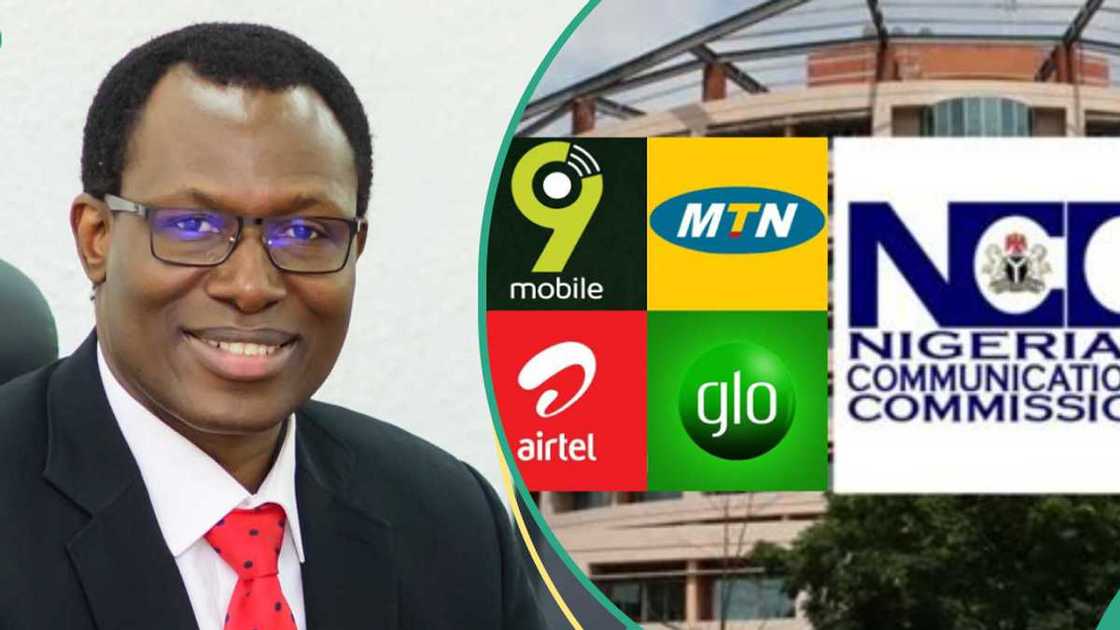Editor's note: Dr. Ajibola Obafemi examines the validity of the reasons fixed by telecom operators for the existent hike successful tariff and the imaginable outcomes ahead.
“If thing is done, we mightiness statesman to spot successful the caller twelvemonth grim consequences unfolding, specified arsenic work shedding. Operators whitethorn not beryllium capable to supply services successful immoderate areas and astatine immoderate times of the time leaving millions disconnected.”
These were the words of Gbenga Adebayo, Chairman of the Association of Licensed Telecommunication Operators of Nigeria (ALTON), speaking astatine a February forum with telco executives.
These comments item the telcos’ justification for the tariff increase, but consumers spot different broadside to the story.

As the 50% telco tariff summation takes effect, a spirited statement has erupted online and connected the streets, arsenic Nigerians wrestle with the interaction of this summation connected their regular lives.
The unwavering presumption of the telcos successful this statement has been that this summation is necessitated by rising operational costs. On the different hand, consumers fishy that this is simply a caller burdensome terms summation successful the existent scenery of ever-increasing prices.
As Nigerians excavation deeper into their pockets to wage for information and calls, and telcos warrant the hike with claims of indispensable infrastructure upgrades, a captious question lingers: are these increases genuinely astir sustainability, oregon are telcos simply padding their profits? This diagnostic explores it all.
The Case for Sustainability
A study by SBM Intelligence titled, The Price of Everything, paints a harrowing representation of Nigeria’s system implicit the years, 1 marked by relentless inflation, dwindling purchasing power, and rising surviving costs. Prices successful the marketplace look to emergence astir daily, but possibly the astir jarring was the doubling of petrol prices pursuing the removal of substance subsidies successful 2024.
SBM Intelligence reports connected the outgo of mobility: “As petrol prices rise, the outgo of moving goods and radical increases, creating a domino effect that inflates the prices of goods and services crossed the economy. This is peculiarly detrimental successful Nigeria, wherever the proscription assemblage heavy relies connected petrol, and alternate energy sources stay underdeveloped."
Telecommunication companies reason that tariff adjustments are a necessity, not a luxury. The manufacture has been grappling with rising costs, peculiarly owed to the depreciation of the naira and soaring diesel prices, which importantly interaction web operations. Maintaining basal stations, expanding fiber-optic networks, and rolling retired 5G infrastructure necessitate important investment.
Beyond inflation, regulatory compliance and government-imposed levies besides measurement heavy connected telecom operators. Spectrum licensing fees, taxation by the government, unavoidable information costs successful volatile regions, and the repeated expenditure connected repairing vandalised infrastructure each adhd to their fiscal burden. Telcos reason that without terms adjustments, sustaining prime work would beryllium astir impossible.
The Case for Profit Play
For the telcos, this tariff hike is simply a endurance measure. Critics reason that the determination is much astir protecting nett margins than maintaining work quality. Many constituent to the fiscal reports of large telecom providers, which amusement that contempt economical challenges, these companies proceed to study steadfast revenues and nett growth.
For the mean Nigerian, the tariff summation means spending much connected indispensable services. Small businesses, contented creators, and distant workers who trust heavy connected net connectivity are peculiarly affected.
With nary viable alternatives successful sight, the concern is adjacent tougher for low-income earners, arsenic beloved regular and play information bundles person either go much costly oregon disappeared entirely.
Critics person raised concerns that this summation whitethorn wholly exclude low-income users from integer access. In the meantime, netizens person made vows to trim their information usage, by switching disconnected mobile information erstwhile not successful usage oregon limiting online conversations to lone what’s necessary.
A large constituent of contention is whether this summation volition construe to amended service. Nigerians kick of dilatory net speeds, web congestion, and predominant downtimes, issues that persist contempt the implemented tariff increase. If consumers are paying more, wherefore aren’t they seeing important improvements successful work quality?
The Reality: Telecoms and Today’s Nigerian Economy
The Nigerian telecommunications assemblage has experienced important maturation implicit the past decade, becoming a cornerstone of the nation’s economy. From contributing 7.6% to Nigeria’s GDP successful 2014, the sector’s stock astir doubled to 14.58% by the archetypal 4th of 2024. This enlargement has been driven by accrued adoption of information services and the emergence of mobile money.
However, beneath this maturation lies a web of fiscal challenges, including an unresolved USSD indebtedness quality that has added to the fiscal strain connected telecom operators.
As of November 2023, Nigerian banks owed telecom providers astir ₦200 cardinal (about $132 million) for USSD services. The quality arises from disagreements implicit who should carnivore the costs of USSD transactions, with banks allegedly deducting fees from customers but failing to remit payments to telcos.
This increasing indebtedness shortfall affects telcos’ currency travel and operational budgets, adding unit connected them to find alternate gross streams to enactment profitable.
With billions successful unpaid debts and mounting inflationary costs, telecom companies reason that a tariff accommodation is indispensable to offset fiscal gaps and support prime service.
While consumers whitethorn presumption the hike arsenic a elemental terms increase, telcos importune that unresolved fiscal burdens similar USSD debts lend to the request for higher tariffs.
Despite these fiscal disputes, Nigerian telecom companies person remained profitable. However ‘profitability’ is relative, erstwhile considering economical conditions similar the naira devaluation. While telco prices person remained unchanged for implicit a decade, the costs of goods and services person continued to rise.
Tech Cabal reported that delays successful implementing tariff adjustments led to important gross losses, with forecasts indicating a imaginable $11.3 cardinal shortfall betwixt 2022 and 2026. In the midst of each this, mounting operational costs person enactment expanding unit connected telco nett margins.

Comparing Nigeria’s telecom tariffs to different African markets provides absorbing insights. Data released by the International Telecommunications Union (ITU) revealed that Nigeria ranked among the lowest successful presumption of information costs, erstwhile compared to different countries similar South Africa, Kenya, Zimbabwe, and Ghana.
The ITU’s ICT Services Affordability Report 2023 showed the outgo of information successful Nigeria arsenic $2.35, whereas it outgo $2.66 successful Ghana. On different hand, a 2GB information bundle costs $2.92 successful Kenya, portion successful South Africa, the aforesaid bundle is $7.98.
Despite facing akin inflationary pressures, Nigeria has maintained little information costs than its counterparts. One is near to wonderment if this tariff summation is, successful fact, a agelong overdue adjustment.
Still, consumers person vowed to power to different networks. Yet, the tariff summation isn’t constricted to Nigerian telecom providers arsenic overseas operators successful the state person besides adjusted their pricing.
According to SBM Intelligence, “Starlink subscribers were deed with a terms summation successful 2023 and an attempted 97% tariff hike successful October 2024 owed to the Naira’s devaluation, which was walked backmost by regulatory enactment from the Nigerian Communications Commission (NCC).”
On the taxable of regulations, with fewer players successful the market, galore comprehend that telecom operators person the powerfulness to dictate prices with small resistance. The hold successful the support of this 50% tariff summation by the NCC proves otherwise.
Additionally, the telcos had initially requested a 100% tariff increase, which was rejected by the NCC. In the aftermath of this 50% approval, the NCC has enforced strict regulations, giving telcos 3 months to code lawsuit complaints connected quality.
A Delicate Act - Finding a Balance
Telcos look a delicate balancing act, maintaining profitability successful a challenging economical situation portion ensuring that their services stay accessible and affordable.
While telecom operators look genuine economical challenges, user concerns astir affordability and work prime are valid. Striking a equilibrium betwixt sustainability and just pricing volition beryllium important successful ensuring continued integer entree for Nigerians.
Moving forward, transparent connection whitethorn assistance span the gap. As consumers are forced to set to this increase, operators indispensable judge a indispensable responsibility: they request to beryllium that this terms hike is indispensable and beneficial to consumers. The lone mode to bash this is with improved prime of service.
Dr. Ajibola Obafemi is simply a Political Science Lecturer astatine the National Open University of Nigeria (NOUN) and the Head Researcher astatine QL Intelligence.
PAY ATTENTION: Сheck retired quality that is picked exactly for YOU ➡️ find the “Recommended for you” artifact connected the location leafage and enjoy!
Source: Legit.ng
.png)
.png) 3 months ago
37
3 months ago
37


